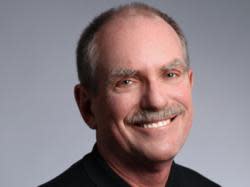Are we in a recession? The economy isn't performing like it used to | The Futurist

It seems that half of the economists and financial pundits are convinced that the U.S. is in a recession and the other half don't. When the preliminary report that the second-quarter GDP has fallen slightly, similar to the first-quarter result, the media quickly – and superficially – claimed that the U.S. has formally entered a recession.
The drop in GDP for two consecutive quarters is part of but not the only metric that determines a recession as many economists and financial pundits have since pointed out. The other key components of a recession are rapidly increasing unemployment, inflation, a bear market in equities and slowing of demand.
The reason that there is massive disagreement about whether the U.S. is in a recession is the employment numbers. The U.S. is currently at 3.5% unemployment, which is the lowest in 70 years. Since the index was founded in 1948, the only number lower was 2.5% during the summer of 1953.
Conventional economic thinking cannot align this historic low unemployment with the definition of a recession. This is why President Biden has grounds to say that the U.S. has not entered a recession, while Fox News chides him on that because of the two back-to-back down GDP quarters.
So why this unusual spread in conventional economic viewpoints?
The answer lies in the reality that this decade, the 2020s, is the most disruptive decade in history. What was is rapidly giving way to what will be. The past is receding faster than usual, and the future is disrupting the status quo faster than ever before.
Readers of this column know that I have warned that legacy thinking is dangerous to hold in this decade. Legacy thinking is fully based on the past: "this is the way it works, this is how we have always done things, past metrics will continue through the present and into the future."
No longer. Not in the 2020s.
Whether we are in a recession or not is not relevant. What is relevant is that the economy is not performing the way it has in the past. Things don’t nicely fit into the categories that we need or think we need for understanding.
There is no question that we live in disruptive times. Formally middle-class people are now lining up at food banks, due largely to the double-digit inflation for food. Home ownership is increasingly out of reach for people. The price of gasoline has tumbled the last 45 days from the high initially triggered by the Russian invasion of Ukraine, but that is the one bright spot on the inflation front.
The metrics of the past seem not to be fully true today. As the poet laureate of the Boomer generation, Bob Dylan, so famously wrote: “Something is happening here, but you don’t know what it is.”
What is happening is that the “future” is disrupting the “present” more than at any time in our lifetimes. You can expect there to be almost constant disagreement from “experts” and “pundits” in the media on almost any economic, social or cultural issues and “norms.” Uncertainty is what will dominate, which in times of massive change, is to be expected.
Do not make the mistake of taking sides, as quite often both sides will be wrong, particularly if data from the past is selectively utilized.
So, while all the economists, financial pundits and talking heads argue about whether we are in a recession or not, take care and give care. Inflation will be coming down in the months ahead, there will be layoffs but also hiring in the workplace. There are some 11 million job openings in the country today so see if there is an upward economic opportunity. If you have something to donate to a Goodwill or the Salvation Army, do so. If you know of a family that is struggling, see if you can help.
Whether a recession or not, acting with humanity is one way to get through.
Sarasota resident David Houle is a globally recognized futurist. He has given speeches on six continents, written 13 books and is futurist in residence at Ringling College of Art and Design. His websites are davidhoule.com and the2020sdecade.com. Email him at david@davidhoule.com.
This article originally appeared on Sarasota Herald-Tribune: DAVID HOULE: Conventional economic thinking doesn't work in the 2020s
